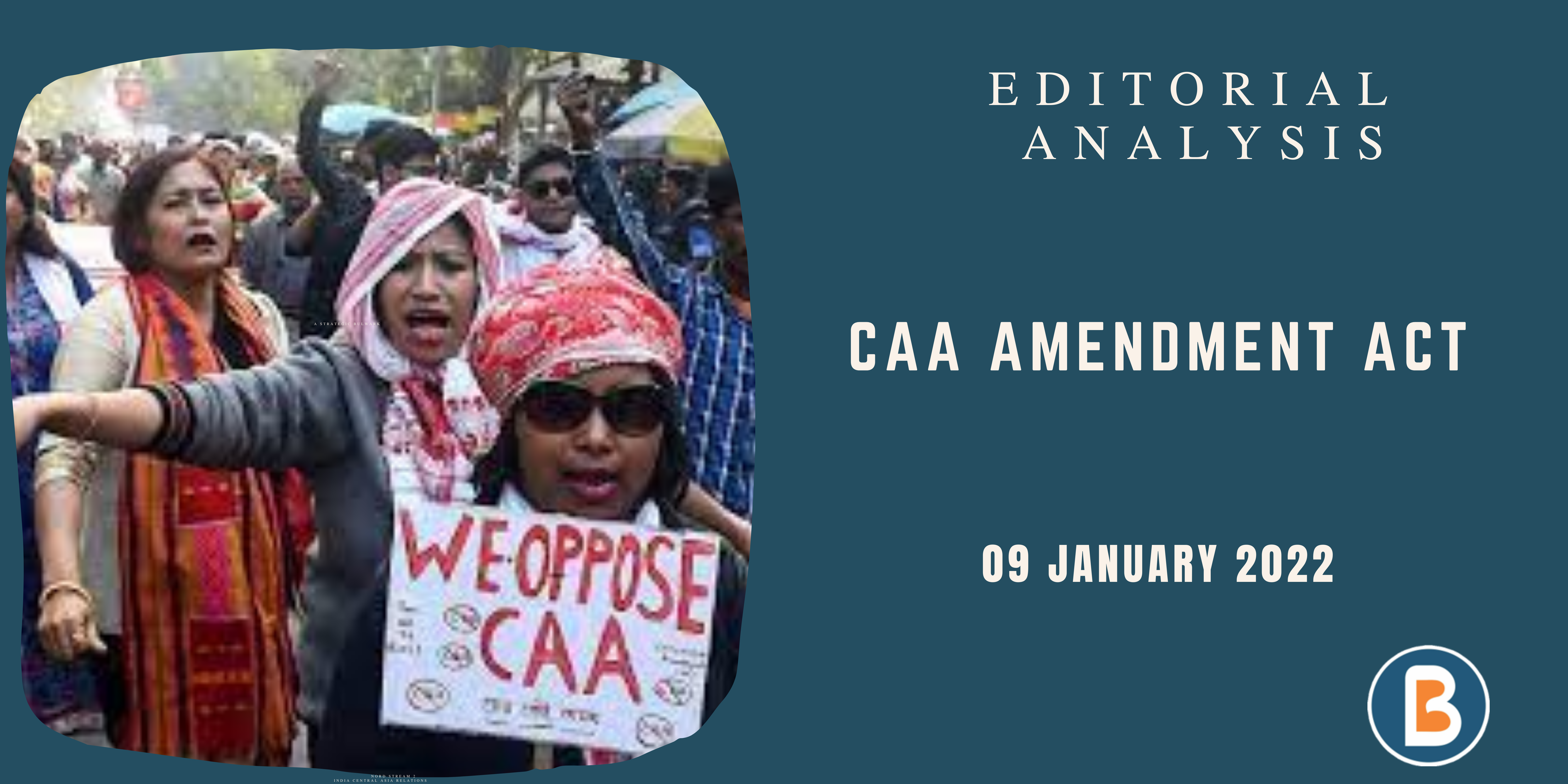- Posted on
- Editorials
Context:
- Central Government is yet to notify the rules regarding the Citizenship Amendment Act 2019.
CAA’s objectives is as follows:
- The CAA’s goal is to offer Indian citizenship to persecuted minorities from Pakistan, Bangladesh, and Afghanistan, including Hindus, Sikhs, Jains, Buddhists, Parsis, and Christians.
- Those from these communities who came to India before December 31, 2014 to escape religious persecution in their home countries would not be considered illegal immigrants and will be granted Indian citizenship.
- The Act stipulates that the central government has the authority to revoke OCI registrations for a variety of reasons.
Exceptions:
- Due to their inclusion in the Constitution’s 6th Schedule, the Act does not apply to the tribal areas of Tripura, Mizoram, Assam, and Meghalaya.
- Areas that lie inside the Bengal Eastern Frontier Regulation, 1873’s Inner Limit will likewise be exempt from the Act’s reach.
Concerns about the law include the following:
- It goes against the Constitution’s fundamental principles. Illegal immigrants are classified according to their religion.
- It is seen as posing a demographic threat to indigenous peoples.
- It allows illegal aliens to apply for citizenship based on their religion. This could be a violation of the Constitution’s Article 14, which guarantees the right to equality.
- It makes an attempt to naturalize illegal immigrants in the region.
- It provides for the termination of an OCI registration if a law is broken. This is a broad category that could include a variety of offenses, including minor infractions.
Source The Hindu




